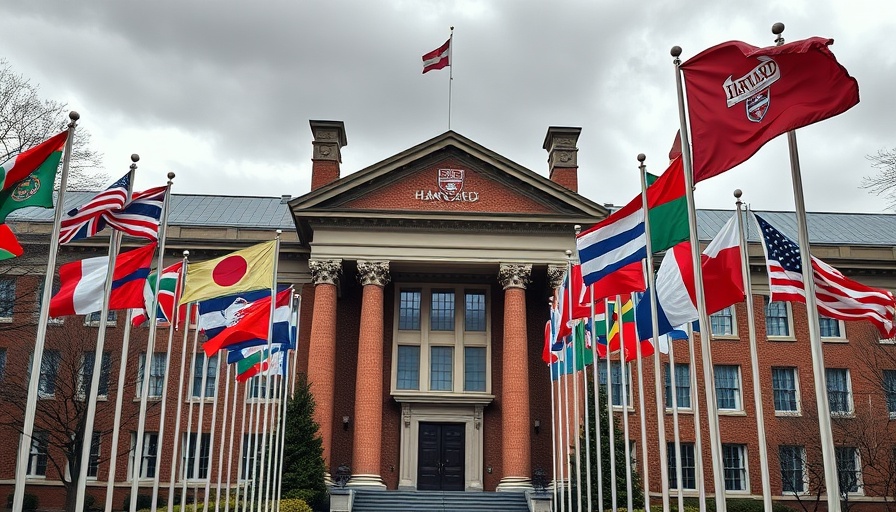
Trump's Recent Threats: Aiming at Harvard's International Enrollment
In a striking turn of events, former President Donald Trump has raised concerns that could jeopardize Harvard University’s ability to enroll international students. This threat emerges from ongoing discussions about immigration and foreign student policies under the Biden administration. Trump’s administration had previously faced criticism for its restrictive policies regarding immigration, and his recent comments indicate a shift back towards those contentious discussions.
The Implications of International Student Enrollment
Harvard, renowned for its global student body, may feel the impact of such threats significantly. International students not only enrich the cultural tapestry of university campuses but also contribute to the local and national economy. According to the Institute of International Education, international students added $39 billion to the U.S. economy in the 2020-2021 academic year. Should Trump’s threats materialize into actionable policies, the consequences could ripple through various sectors reliant on these students.
Understanding the Political Landscape
The intersection of education and politics is particularly volatile in this context. With Trump’s continued influence in the Republican Party, his threats reflect a deeper strategy to appeal to his base by portraying a tough stance on immigration. This mirrors the approaches taken during his presidency, characterized by a focus on prioritizing American lives over those of immigrants and foreign nationals.
Global Perspectives: A Compelling Example
Harvard’s situation is not isolated. Klaus Schwab, founder of the World Economic Forum, emphasized the importance of global collaboration in education. Countries like Canada and the UK are keen on attracting international talent as they recognize the potential benefits for their economies and cultural exchange. Should the U.S. impose more stringent restrictions, it risks losing its status as a prime destination for international education.
The Future of U.S. Education Policies
Predictions about the future of U.S. education policies suggest that ongoing political tensions will continue influencing international student enrollment. Experts caution that a reevaluation of visa regulations could lead to a decline in the numbers of foreign students, possibly undermining U.S. standing in the global education market. There’s a sentiment among educators that a balanced approach, which welcomes international students while ensuring national security, could foster stronger diplomatic ties.
Harvard's Response: Navigating Political Waters
In light of trumps comments, Harvard officials have expressed their commitment to diversity and inclusion. Maintaining a robust international student enrollment is paramount for the institution. This situation amplifies the debate over educational institutions’ autonomy and their ability to maneuver through political landscapes while fulfilling educational missions.
Conclusion: The Broader Impact on Society
As discussions around immigration and international student policies unfold, the potential consequences for Harvard and similar institutions loom large. The benefits of a diverse educational environment are clear, yet continued political pressure may pose challenges. Individuals and policymakers alike must recognize the value international students bring, and strive for policies that embrace inclusivity and promote global education.
 Add Row
Add Row  Add
Add 




Write A Comment